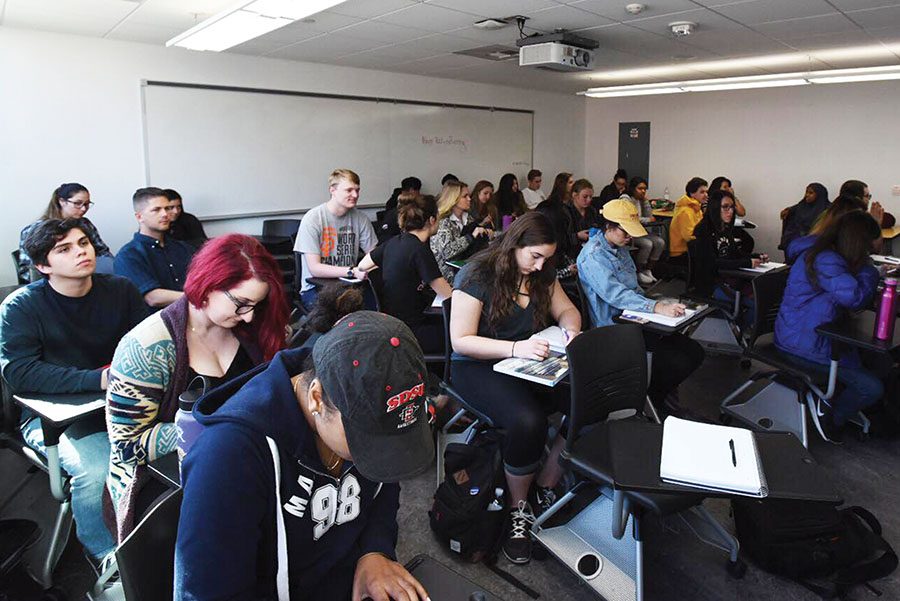San Diego State now offers a class on Nahuatl — an indigenous language spoken in Mexico and most famous for being the tongue of the Aztecs.
Center for Latin American Studies Director Ramona Perez said the class, LATAM 296: Elementary Nahuatl I, is taught by a Nahuatl speaker at the University of Zacatecas in Mexico through live-streamed lectures.
Perez said she has been trying to bring the class back to SDSU since it was cancelled after a short-lived run in the early 2000s. University administration made a commitment to pay for the original Nahuatl courses at that time, but did not have enough money to follow through, she said.
“Our center and faculty are known for our expertise on the indigenous languages and cultures of Mexico,” Perez said. “This is why offering these courses to our students is so important to us.”
This new course joins Mixtec and Zapotec as one of three indigenous languages taught at SDSU.
Perez said she is also aware this class may get caught up in the conversation surrounding the controversial Aztec mascot.
Regardless of what symbol university officials choose to represent SDSU, she said everyone has an obligation to at least understand what the Aztec empire was and who the Nahua people are.
“With this course, I will and can provide the university and its students, faculty and alumni this deeper and richer understanding of the Nahua history,” Perez said. “Let’s not forget the Nahuatl language is still very much alive in Mexico.”
Liacel Wesson, a Latin American Studies graduate student, said she is taking the class to fulfill her indigenous language requirement. It’s also her first time learning a new language, and she said she believes the class will provide her with insight to her own cultural identity and her roots in Mexico.
“Even though I may not continue on with the language after this class, it’s still something that I know will help me fulfill my own personal goals,” Wesson said.
Wesson also said she encourages other students to take advantage of the class because not many universities offer indigenous language courses. She said it would benefit students involved in the mascot debate to learn more about the Nahua culture.
Kinesiology junior Amalia Gonzales said she thinks the class is a positive addition to the school, and she respects the Center for Latin American Studies for fighting to bring it back.
“It’s cool to think I go to a school that has classes about indigenous languages,” Gonzales said. “If my schedule wasn’t so busy, I would take the class because it’s a chance you don’t come by often.”
Gonzales, who is of Mexican and Native American descent, also said the Nahuatl class can offer some students the opportunity to connect more with their culture if they currently feel uninformed about their own heritage.
“No one should feel like it’s too late to discover their background, so if this class can help students learn about their culture then I say go for it,” Gonzales said.







